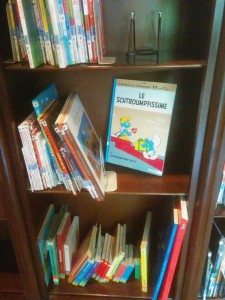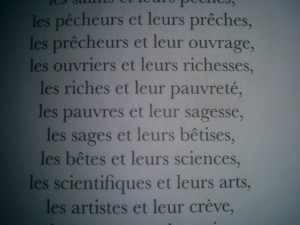Reading French in Louisiana is important. I’ve talked about this before in reference to the potential effects Kirby Jambon’s success with Petites communions: Poèmes, chansons, et jonglements on Louisiana literature, but what I didn’t talk about is how we access these works.
The Milton H. Latter Memorial branch of the New Orleans Public Library recently opened a new section, called the French Corner, for French books geared mostly towards children and young adults who attend nearby French immersion schools, as reported by NOLA Francaise. This initial offering was provided by the Consulate General of France, who, I have been informed, will be provided more books this fall.
Expansion will be a good thing. My initial impression of the section was that it appeared to be good for kids but limited, and I feared that it may be one of those initiatives that quickly loses steam. While a similar areas are not expected to be added to other branches, the Latter branch seems intent on maintaining theirs well.
The library won’t be relying on donations from the Consulate, but will also actively purchase books, and possibly even French films, based on staff and patron feedback. This means there’s an opportunity for those who visit this location to help guide its development by contacting them. One thing I noticed, for instance, was that there were no books by local authors. Of course, there are far greater options if one looks outside of Louisiana for books for children and young adults, but there’s no reason this can’t become a small addition to the economic possibilities for francophone writers in the state by including some. I myself suggested adding some of Jean Arceneaux’s (pen name of Barry Ancelet) transcriptions of folklore stories or perhaps Susan Spillman’s book Compere Lapin voyageur. Giving these works greater visibility and connecting Louisiana francophone publishers, such as Centenary College’s Éditions Tintamarre, to libraries could only help foster a stronger literary scene.
And let’s not forget to use French when visiting the Latter branch. I was informed that there are two full-time staffers who are fluent in French and a French speaker will be taking over managing the section in August. Just as I’ve been urging people to insist on using French in public interactions at francophone businesses around the state, we could also be doing the same when visiting libraries.
There is ample room for this initiative to grow, and it’s wonderful to see these efforts on the parts of the library and the General Consulate.






Recent Comments